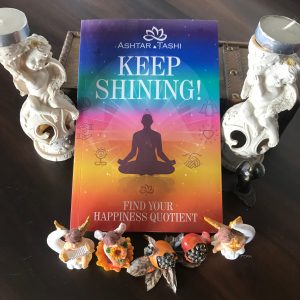Lathika George is all too acquainted with the many pleasures and travails of life on Indian farmlands. She is a landscape designer, environmentalist and organic gardener and has written extensively on these topics for several publications. She also has some unique cookbooks to her credit. Her latest book, Mother Earth, Sister Seed, has been published by Penguin Random House and tells a lyrical tale of Indian farmlands.
 Bookedforlife converses with Lathika George on her experience of writing Mother Earth, Sister Seed and on what we can take away from that.
Bookedforlife converses with Lathika George on her experience of writing Mother Earth, Sister Seed and on what we can take away from that.
The experience of visiting India’s farmlands must have been an exhilarating one. What is it that you take away from this?
In many ways, the conversations and interactions with people I met on these journeys have affirmed what I have believed: farming is far from a ‘hopeless’ profession. It is vibrant and alive, a life worth pursuing. The farms I visited were mostly smallholdings, farms and agrarian communities where traditional agriculture is still practiced. The diversity of crops on these farms ensure they will never want for food, but like farmers everywhere they need fair prices for their produce and much needed cash. Farming is a way of life for these farmers and it is the rituals, folklore and celebrations that take them through the highs and lows of an agricultural season. What I take away is this: the dignity and pride, the wisdom, fortitude and humour of people who are truly the heart and soul of India.
How viable do you believe farming is as a career option for the current generation? What should be done to make farming appealing to people once more?
Not everyone has the aptitude for farming. The agricultural sector (which already accounts for the largest number of jobs in the country) can provide a range of opportunities for the present and future generations in research, education, business, journalism, engineering and more. But for those who choose to farm, there are many ways to make a decent living. Small farms with a diversity of crops best suited for the region, aided by mechanization for labour-intensive field work, have proved to be a sustainable model for farming. But, I think it is clear that unless farming is made more lucrative – fair prices for farm produce – it will continue to be viewed as a dismal choice in terms of hard cash. However, there are an increasing number of people who opt for farming as a lifestyle choice – a life lived on different terms.
At many points in the book you have mentioned that the locals always took what they needed from nature – enough for their genuine needs. Does the same spirit continue today?
Indigenous tribes will never exploit the forest or ‘bleed’ a plant dry. Instead, they take only what they need as they leave the tree or plant to regenerate. Tubers and roots are never completely removed – a few rhizomes are left behind to regenerate. Indigenous people have specific rules for plant collection. For instance, the tribals of Jharkhand who depend on forests for food, fodder and medicine will pluck medicinal products only at daytime before noon, and only strip bark from the side of the tree that faces the morning sun. They have an innate knowledge of the ways of the forest since they live close to nature. Moreover, as they worship the elements of nature that provides sustenance, they will never exploit or abuse it. This does continue to this day among tribals who are still dependent on the forests, except in areas where outside influences have crept in.
You have been critical of government actions that have ruined things, but you also praise instances where government intervention has contributed positively (such as in Sikkim). Can you briefly explain how the government can play a facilitating role rather than an inhibiting one to encourage farmers and farming?
The Swaminathan Commission Report for the National Commission for Farmers covers all aspects of the reforms needed for change – access to basic resources like land, water, bio resources, credit and insurance, technology, knowledge and reliable markets. It recommends a formula for calculating the Minimum Support Price for farmers, and addresses the issue of sustainable farming. This report was submitted in 2006 and is yet to be implemented. The guidelines are all there for the governments to follow -all that is needed is the intent to see it through.
You mention in the book that you moved away to the countryside after living in the city. What motivated your decision? How long has it been?
My husband loves the mountains and wanted to move to the countryside. So, we decided to try it out for a few years. It has been 31 years now and this is a life we have come to love. We live in a village just outside Kodaikanal town in Tamil Nadu with farms all around our home. I recently expanded my own kitchen garden to a ‘one-acre farm’ as I experimented with the techniques and information I had gathered over the years. Though I refer to my methods of gardening as ‘organic’, this simply means I grow vegetables naturally, without chemical pesticides and fertilizers or genetically modified seeds.
What is your advice for someone considering making the big change to a life more in harmony with nature?
Living in rural India calls for a change in lifestyle and giving up many things that you take for granted. Weigh the pros and cons carefully and make your decision based on what strongly outweighs the other.
Lathika George gives a detailed glimpse into the many facets of life in harmony with nature in India’s farmlands and forests, as well as the unique challenges that modernisation poses to the indigenous way of life.
Books by Latika George










